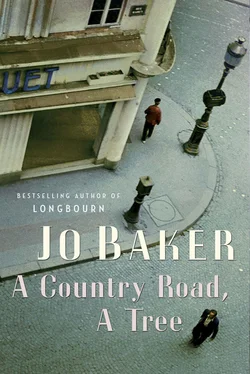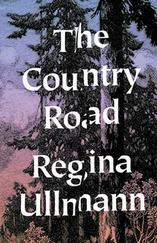CHAPTER FIVE ARCACHON, Summer 1940
The waves creep up and crash on the far side of the rue de la Plage. The breeze is cool from the Atlantic and takes the sting out of the sun. The two men sit on the terrace, under the shade of an awning. Their hands are brown as they reach to lift and shift the veined marble and speckled granite pieces.
It has been — who would deny it? — a beautiful summer, full of ugly news.
Studying the chessboard, a cigarette smouldering between his knuckles, he tries to conjure all the futures he and Marcel Duchamp might summon up between them here. Marcel lifts a piece, and sets it down, and a web of potentiality collapses and falls away to dust: the future refines itself. He follows threads of possibility. He thinks.
Marcel tweaks the brim of his white straw hat low, to shade his eyes. Mary reads on the sunlounger, soft-limbed and tanned, and every so often he hears her sigh and turn a page.
He takes a long drag on his cigarette, and lets the smoke go, and lifts his knight.
When Suzanne joins them, after her swim, all slicked wet hair and lean tan, Mary looks up with a smile and sets her book aside. Drinks are proposed and the game put in abeyance till the following day. The stone figures cast long shadows as the sun sinks, and everything is softened by the Charentais-pink light. They drink and talk and laugh and it is all apparently quite lovely. But it is also a bubble. Everybody knows that it can’t last.
“There is Spain, of course; we could go to Spain.”
“Why would you go to Spain?”
“A friend of mine’s in the British Consulate there. And it’s not far.”
“That’s no reason to go anywhere. You don’t want to go to Spain. Spain will be shit.”
“Marcel!”
“Sorry. My apologies. The ladies’ tender ears, et cetera. But it will be shit. You know it will.”
“You’d need a car to get to Spain.” Mary turns to him, speaks in sudden English.
“Do you think so?”
“Well, it’d be a hell of a walk.”
“Oh, he could walk it,” Suzanne says, and they are back in French. “He could walk the legs off a mule, you should see him walk, my God.” Suzanne lifts her glass; he looks to her, but she doesn’t catch his eye. He has offended her, it seems, but he doesn’t quite know how.
“You don’t want to go to Spain.” This is Marcel again. “Bloody fascists.”
Mary’s tone is emollient, explanatory: “I don’t think he is suggesting they settle there permanently.”
Marcel tilts his head at this now. “America?”
“Ireland,” he concedes.
“Ah, you’re going home.”
“I wouldn’t quite say that.”
Suzanne looks up at him, his heron profile, his shadowed eyes. His spectacles have been tucked carefully away. He turns his head and meets her look with that startling blue gaze.
“What would we do,” Suzanne asks, “in Ireland?”
He shrugs. “We’d get by.”
Suzanne looks at him, then down at her glass. She turns it round and round on the tabletop, watching the light caught there, the way it stays put no matter how much she twists the glass. Her cheeks feel hot.
“Better off in America,” Marcel says. “Ireland won’t last. Not after England falls.”
Mary gives him a look.
“I’m telling you. America will be all that’s left. Anywhere else will just be more of the same, and it will be shit.”
A bruised silence. Suzanne watches as Marcel drains his glass, and pours himself another drink, and starts talking about New York. He, though, has reverted to wordlessness; she can hear him breathing, and that is all; breathing, thinking, unfathomably thinking. While Marcel goes on: New York is the future; New York is where they should all be heading now; New York will soon be all that’s left of Europe.
“I miss Paris,” Mary says lightly.
“You’ll always miss Paris.” Marcel lifts his cigarette case from the tabletop. “From now on, all of us who ever gave a fig for it always will. Paris won’t be Paris any more. Paris can never truly be Paris again.”
He, now, leans away from Marcel; he folds his arms, glances over to the chessboard.
“Well, Paris is my home,” Mary says. “It’s where my books are.”
“You can make more books,” Marcel says, over a huff of cigarette smoke. “You always do.”
There’s a silence after this, and it extends just a little too long before Mary speaks again.
“I’ll go see what’s holding dinner up.”
She gets to her feet and pads off inside the house.
—
Later, the two of them walk home together along the promenade. She slips her bare arm through his; it is cool silk, and heavy.
“Earlier, what you said about us going to Ireland.”
“Yes.”
“Do you mean it?”
“I dare say.”
“You said you couldn’t breathe there, couldn’t sleep, you couldn’t write.”
He nods.
“But you would go. We would go.”
“If we had to. But, you know, you’d hate it there.”
“You think so?”
There is a long pause, in which their feet crunch along the sandy boards and the wind blows her hair into her eyes. She tucks it back behind her ear, looks at him sidelong, waiting for what might come.
“I’m at a loss, to tell the truth,” he says. “There’s nowhere left to be.”
They walk on, arm in arm, through the summer night and the sound of waves breaking on the shore. The world is ending, and it is exuberantly, ridiculously beautiful.
—
The year turns, and the shadows lengthen, and they do not go to Ireland, or even Spain. The Atlantic wind blows chill, and Mary and Marcel’s arguments heat up. America, Marcel says. America America America. New York. Mary just says Paris, and Home.
But Marcel does not leave, and neither does Mary. Nobody leaves. Nobody goes anywhere at all. The bubble holds, shimmering in the end-of-summer cool.
He, though, at least writes letters; he sends off enquiries and tries to find out what could be done. Replies come from Madrid. He hands one such to Suzanne, watches her face as she sits reading it in the dim little salle à manger, where the furniture is too big for the room and must be edged and shuffled round and leaves bruises on the hips and thighs.
She lays the letter down. “Well. Should we?”
“I think so. Probably we should.”
She considers the letter again, the official stamp, the friendly-but-cautious tone. Safe passage through Spain is still possible. Once in Portugal, finding a berth to Ireland would be relatively unproblematic, since commerce continues between the neutral countries more or less uninterrupted.
Daylight gleams on the tabletop. His expression is null, withheld, his back to the light. She cannot make him out at all.
“Well,” she says.
He shrugs. If they go, everything changes. They would have to get married. Mr. and Mrs. , the clerk at the Legation had said. It’s the only way Suzanne could travel with him. They’d take ship, dock in Dun Laoghaire in November. His mother would be happy to have him grown up and respectable, would try, for a while, to like Suzanne. Frank would give him a job. He would knuckle down; he would loathe every ticking minute of it. Suzanne’s English would improve; she would use it to complain about everything because it isn’t French. And that would be it, for ever. And he can’t face it.
“If you want to,” he says.
She raises her eyebrows, pulls in her chin, assesses him. “We’re getting by, though, aren’t we?”
“In Cahors, that night,” he says, “I thought that you would die.”
“Well, I didn’t. Neither of us did.”
“If you had, it would have been my fault.”
“Don’t be stupid.” She pushes her chair back, edges out and round the table.
Читать дальше










